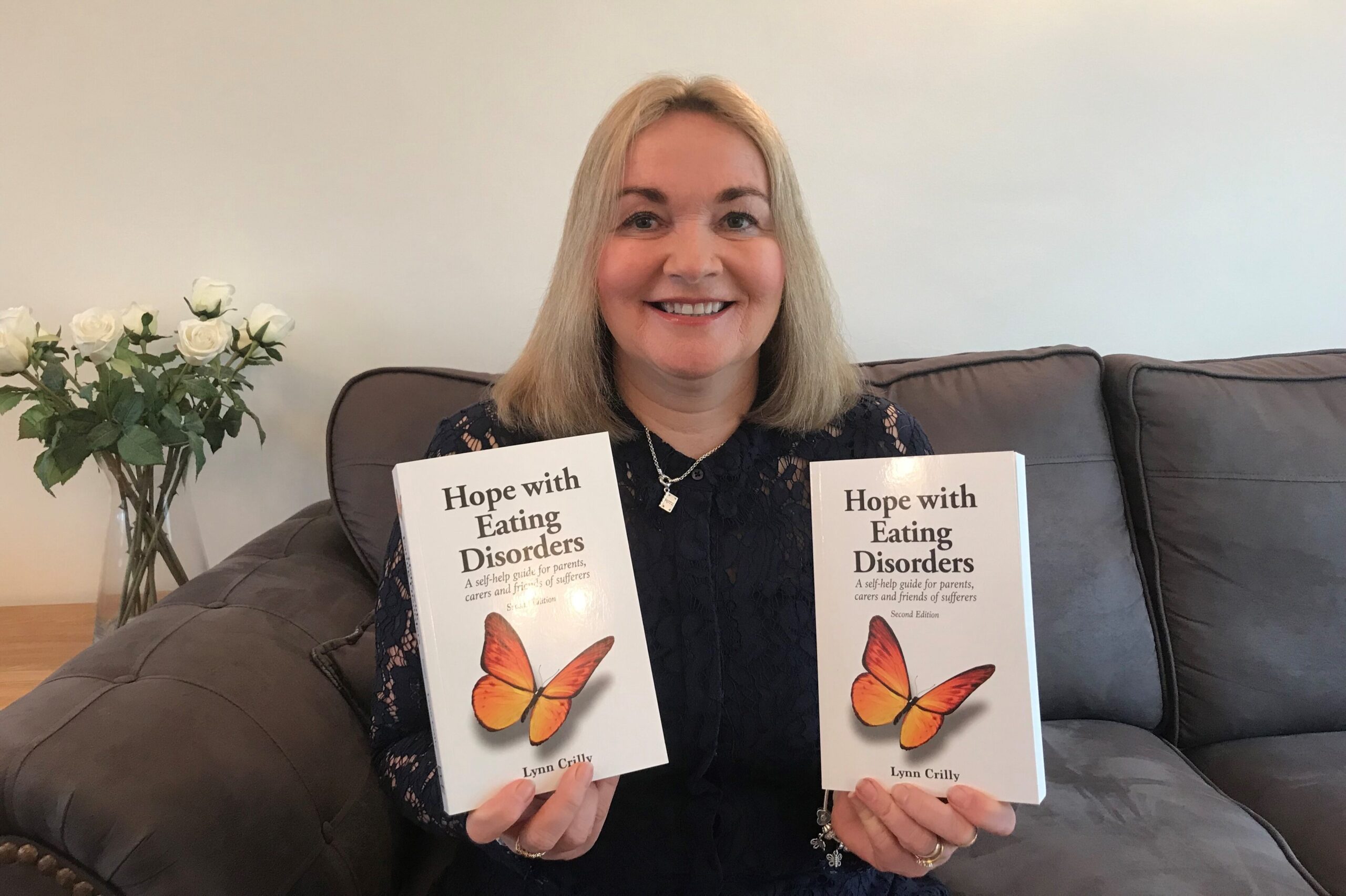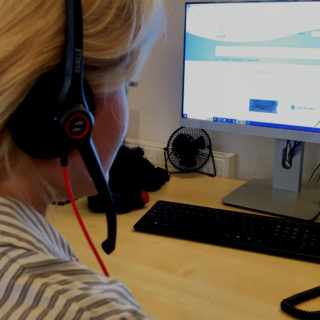Say the right thing – from ‘Hope with Eating Disorders’
When we discuss eating disorders, there’s a tendency to focus on the sufferer. Yet there are millions of concerned parents, carers, friends and relatives who are confused and frustrated – both by their own personal circumstances, and by the abundance of potentially misleading information.
Hope with Eating Disorders by SANE Champion, Lynn Crilly, offers real understanding of the mind-set of someone suffering with an eating disorder. It provides an extensive description of the various treatments available for the many and varied types of eating disorders that exist. With interviews from some of the world’s leading experts, it sends the message that real, full and lasting recovery is possible, despite what we are so often told.
Having helped her own daughter on the journey from an eating disorder back to health and happiness, Lynn wants the HOPE within these pages to leap out and give a hug of inspiration and strength; to you, a friend or a loved one. With the help of this book you can progressively break the negative spiral of this all too common illness once and for all.

Here is an excerpt from Lynn’s book:
Say the right thing
It can be really hard to know what to say to someone with an eating disorder. You do not want to ignore the illness, but sometimes you just do not know if you are saying the right thing.
With help from my past and present clients and others with eating disorders, I have put together a list of some words that are helpful for those with eating disorders, and others that are best avoided.
What to say
- You might ask questions such as: ‘Can you tell me what is happening?’ or ‘Do you feel you would rather talk to someone else about this?’
- Give them space and time to express themselves, asking: ‘Would you like my advice or would you rather I just listened?’
- Encourage your loved one by saying something like: ‘There is nothing you can say that will stop me loving you.’
- Praise them for every small step forward by saying: ‘‘This must be hard for you, but you are going to get through it,’ or ‘I am so proud of you.’
- Help take away their fear by telling them: ‘You are not alone, and I want to help you in any way I can.’
What not to say
- Try not to apportion blame or anger by saying things like: ‘Why are you doing this to us?’ or ‘Look at the effect this is having on the rest of family.’
- Try not to minimise the problem by saying ‘What do you have to worry about?’ or ‘This is all in your head.’
- Try not to ask someone to ‘snap out of it’ or ‘pull yourself together’. Eating disorders are complex, deep-rooted problems and cannot be switched off like this.
- Try not to comment on the person’s body or weight or say things like ‘You look great now you have put on some weight.’
- Try not to judge them, whatever they confess to you. Tell them: ‘I respect your viewpoint’ even if you do not agree with what they are saying.
- Try not to say ‘I do not know how to help’ as they are looking to you as someone to help take their pain away.
A lot of the time, simply just listening can be helpful. It is important to talk to the sufferer in the same way you have always done – remembering they are the same person that they were before.





